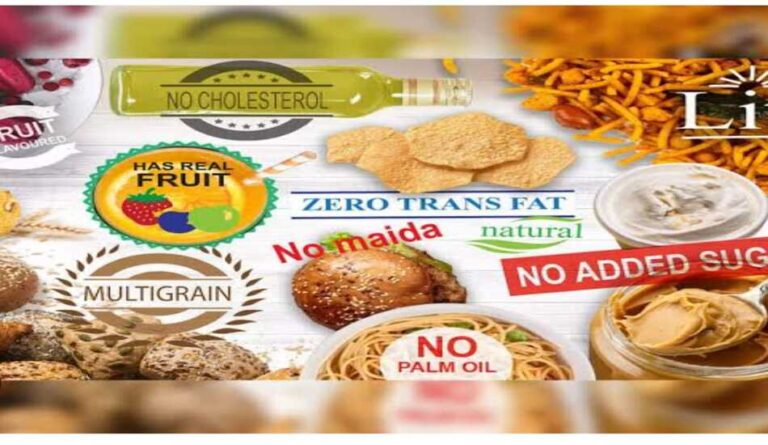No Added Sugar or Sweet Lies? How Health Washing Misleads Us
In today’s health-conscious world, food companies have mastered the art of “health washing”—using misleading labels and marketing tactics to make products seem healthier than they actually are. One of the most deceptive strategies involves the claim “No Added Sugar”. While this phrase suggests a product is free from unhealthy sugars, the reality is often more complex and misleading.
What Does “No Added Sugar” Really Mean?
The term “no added sugar” means that a product does not contain extra sugars such as white sugar, honey, or syrup. However, this does not mean the product is free from sugar or that it is healthy. Many foods labeled this way still contain naturally occurring sugars from fruits, dairy, or even concentrated fruit juices, which can significantly impact blood sugar levels.
For example, a fruit smoothie with “no added sugar” may still contain as much sugar as a soda, thanks to the natural sugars in fruit and fruit concentrates. Similarly, flavored yogurt marketed as sugar-free may contain high amounts of lactose, a natural sugar, making it just as sweet and calorie-dense as regular yogurt.
The Hidden Sugar Sources
Manufacturers often replace added sugar with alternative sweeteners, which may have their own health risks. Some common hidden sugars include:
- Fruit Juice Concentrates – These are often used in place of added sugar, but they contain just as much fructose and can spike blood sugar levels.
- Natural Sweeteners (like honey, agave syrup, or maple syrup) – Although perceived as healthier, they still affect metabolism similarly to regular sugar.
- Artificial Sweeteners (like aspartame, sucralose, or saccharin) – These provide sweetness without calories but may lead to cravings, overeating, or even digestive issues.
- Maltodextrin and Dextrose – These additives have a high glycemic index and can cause rapid spikes in blood sugar, despite being marketed as healthier alternatives.
How Health Washing Misleads Consumers
Health washing works by playing on consumer trust. Many people assume that “no added sugar” means a product is healthier, but this is not always true. Some misleading tactics include:
- Misleading Serving Sizes: A product may list low sugar per serving, but the actual portion most people consume contains much more.
- “Made with Real Fruit” Claims: This often means the product contains fruit puree or juice, which can be just as sugary as artificial sweeteners.
- Healthy-Looking Packaging: Green packaging, images of fruit, or words like “natural” and “light” create the illusion of health.
- Sugar by Another Name: There are over 60 names for sugar, including cane juice, molasses, and barley malt, making it hard for consumers to spot.
The Impact on Health
The excessive intake of hidden sugars contributes to:
- Weight Gain & Obesity: Even “natural” sugars can lead to fat accumulation if consumed in excess.
- Increased Risk of Diabetes: High sugar intake, even from natural sources, can lead to insulin resistance over time.
- Liver Damage: Fructose-heavy foods (like those with fruit juice concentrates) put strain on the liver, similar to alcohol.
- Dental Issues: Natural sugars still promote tooth decay, especially in processed foods marketed as healthy.
How to Avoid Falling for Health Washing
- Read the Ingredients: Look for hidden sugars under different names.
- Check the Nutrition Label: Look at total sugar content, not just “added sugar.”
- Be Wary of Sugar Replacements: Even “natural” alternatives can have similar effects.
- Focus on Whole Foods: Fresh fruits, vegetables, and minimally processed foods are the best choices.
- Finally, “No Added Sugar” does not mean sugar-free or healthy. Understanding food labels and being aware of marketing tricks can help consumers make informed choices and avoid falling for sweet lies.
For individuals with diabetes, managing blood sugar levels is crucial. While no sugar is entirely without effect, some options have a minimal impact on blood glucose levels:
- Stevia: A natural, zero-calorie sweetener derived from the leaves of the Stevia plant. It does not raise blood sugar levels.
- Monk Fruit (Luo Han Guo): Another natural, zero-calorie sweetener that has no effect on blood sugar.
- Erythritol: A sugar alcohol that has almost no calories and does not affect blood glucose or insulin levels.
- Allulose: A rare sugar that is naturally occurring and has minimal impact on blood sugar levels.
- Sucralose: An artificial sweetener that is not metabolized by the body and does not raise blood sugar levels.
- Aspartame: Another artificial sweetener that does not affect blood glucose levels.
It’s important to note that while these sweeteners may not raise blood sugar levels, they should still be used in moderation. Additionally, individual responses can vary, so it’s always a good idea to monitor blood sugar levels when trying new sweeteners and consult with a healthcare provider for personalized advice.
56 Different Names for Sugar
The best way to ensure ,we are not consuming excess added sugars is to get in the habit of always scanning the ingredient list below before we throw the item in our cart. Keep in mind that ingredients are listed by quantity from high to low: the closer to the front of the list a form of sugar is, the more the product contains.
Use this list of sugar names below to help you avoid a head rush when you shop!
Sugar synonyms – the most common names for sugar
(Excluding artificial sweeteners and sugar substitutes)
Basic Simple Sugars (monosaccharides and disaccharides):
Dextrose
Fructose
Galactose
Glucose
Lactose
Maltose
Sucrose
Solid or Granulated Sugars:
Beet sugar
Brown sugar
Cane juice crystals
Cane sugar
Castor sugar
Coconut sugar
Confectioner’s sugar (aka, powdered sugar)
Corn syrup solids
Crystalline fructose
Date sugar
Demerara sugar
Dextrin
Diastatic malt
Ethyl maltol
Florida crystals
Golden sugar
Glucose syrup solids
Grape sugar
Icing sugar
Maltodextrin
Muscovado sugar
Panela sugar
Raw sugar
Sugar (granulated or table)
Sucanat
Turbinado sugar
Yellow sugar
Liquid or Syrup Sugars:
Agave Nectar/Syrup
Barley malt
Blackstrap molasses
Brown rice syrup
Buttered sugar/buttercream
Caramel
Carob syrup
Corn syrup
Evaporated cane juice
Fruit juice
Fruit juice concentrate
Golden syrup
High-Fructose Corn Syrup (HFCS)
Honey
Invert sugar
Malt syrup
Maple syrup
Molasses
Rice syrup
Refiner’s syrup
Sorghum syrup
Treacle
Marketing often exaggerates claims, but some aspects hold merit. Consumers should rely on peer-reviewed research rather than marketing jargon when choosing health products or treatments.Evidence based medicine remains the gold standard for verifying efficacy.
Sugar-Free & Organic Products:
Many sugar-free products replace sugar with artificial sweeteners, some of which, like aspartame and sucralose, have controversial health effects. Organic food, while free from synthetic pesticides and GMOs, does not always offer superior nutrition. Studies show marginal benefits in antioxidant levels, but claims of significant health advantages remain debated.
Alternative Medicine:
While some practices, such as acupuncture and herbal medicine, have scientific backing, others lack rigorous validation. Homeopathy, for example, contradicts fundamental scientific principles. The placebo effect often explains perceived benefits in unproven treatments.







